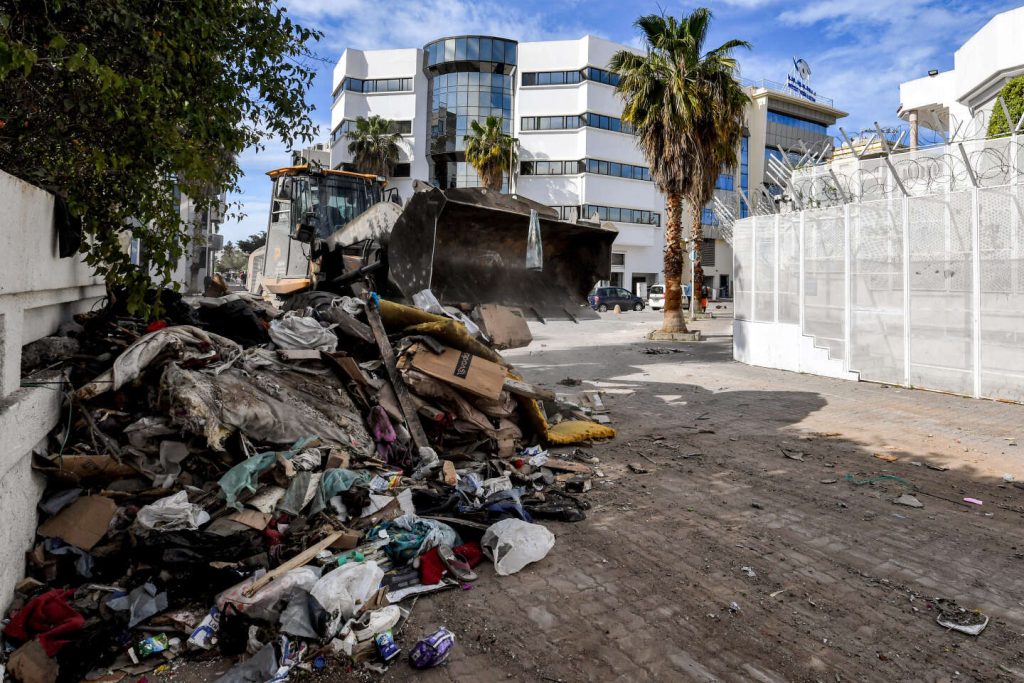A bulldozer clears debris from a migrant camp after a forced evacuation in front of the International Organization for Migration (IOM) headquarters in Tunis on May 3, 2024. It was 2 am on Friday, May 3, when law enforcement agents showed up at the migrant camp, located in front of the IOM headquarters in the bank district of Tunis. Exiled Cameroonian, Simon, recalls the sudden evacuation that forced everyone to flee in the middle of the night. Many migrants, mostly from West African countries, were waiting for assistance from the IOM for a voluntary return to their home countries. They were calm and had not caused any trouble, so they were confused as to why the camp was forcibly removed.
Many migrants, including men, women, and children from war-torn countries in East Africa, were seen waiting in a public garden for international protection. Others had set up tents outside the UN Refugee Agency headquarters. Dozens of displaced people who had been staying in a youth center since the closure of the Choucha camp in 2017 were also evicted in the suburb of La Marsa. Reports suggest that around 80 arrest warrants were issued for those detained over the weekend, and hundreds were expelled to the country’s borders following a coordinated large-scale evacuation, similar to operations in Sfax the previous week.
Tunisian President Kaïs Saïed admitted to collective expulsions for the first time during a security council meeting. He mentioned that 400 people had been sent to the eastern border in coordination with neighboring countries. Human Rights Watch denounced the systematic violations of rights against black migrant populations, noting that arrests and expulsions were done without individual evaluation of their status, simply based on their race and African origin. Since President Saïed’s speech in 2023, labeling migrants as part of a conspiracy to change the Arabo-Islamic identity of the country, Tunisia has shifted towards a more securitized approach to Sub-Saharan African migrants.
The crackdown has extended to civil society organizations. Saadia Mosbah, the president of Mnemty, an anti-racism association, was arrested and detained on charges related to counterterrorism and money laundering laws. The former director of Terre d’Asile Tunisia, as well as the president and vice president of the Tunisian Refugee Council, were also arrested. The authorities seem to be targeting organizations providing assistance to migrants and refugees with the aim of instilling fear and halting their support efforts, exacerbating the vulnerable conditions of these populations.
Despite refusing to host migrants, Tunisia continues to prevent them from reaching Europe with financial and logistical support from the European Union. The number of intercepted migrants at sea has increased compared to previous years, as the government aims to stop the flow towards Northern Mediterranean countries. President Saïed has repeatedly stated that Tunisia is not a place for these migrants and will ensure they do not use the country as a transit point to reach other parts of Europe. The ongoing crackdown on migrants and civil society organizations shows a concerning trend towards targeting vulnerable populations and those trying to assist them in Tunisia.


